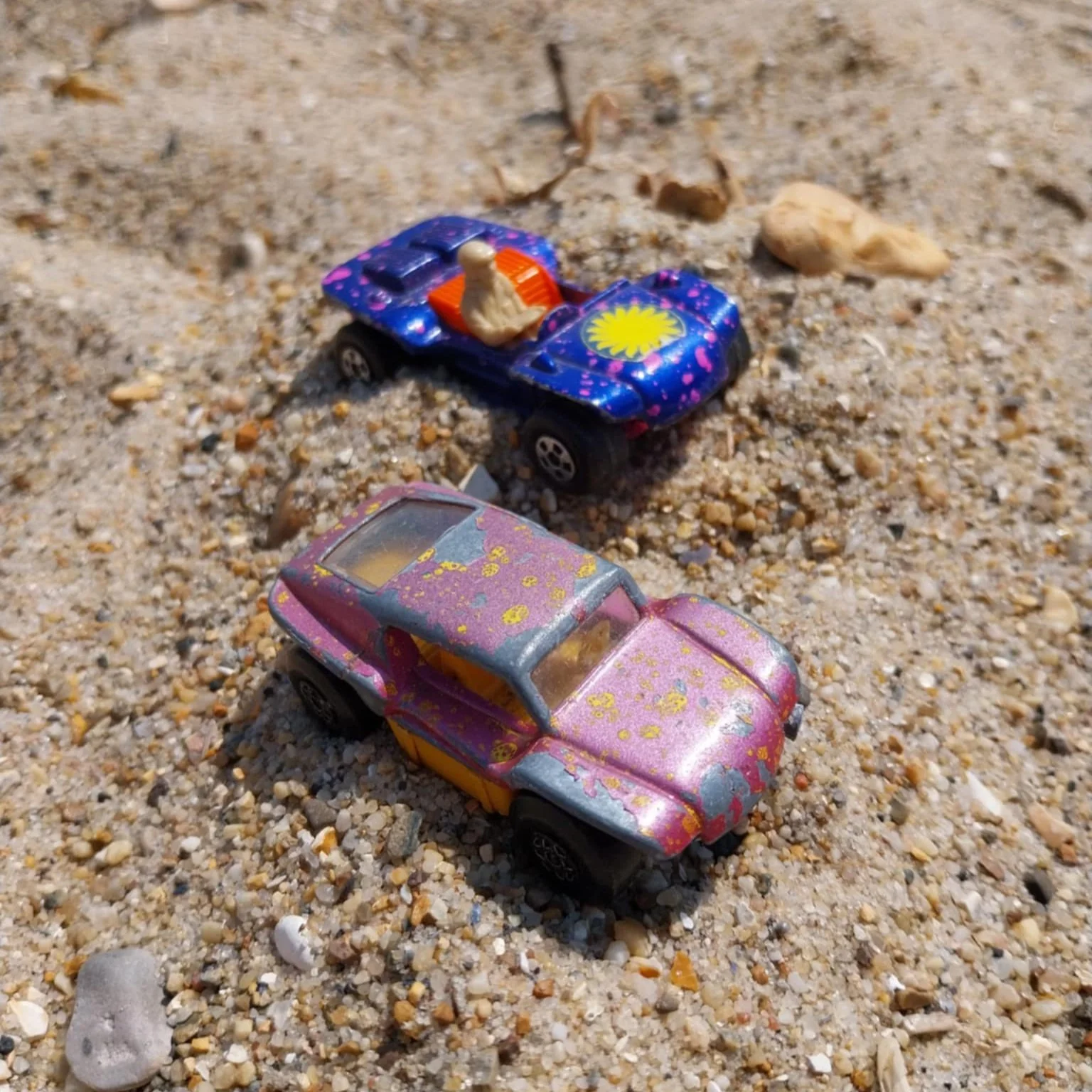‘No47 Beach Hopper’ from Rolamatics collection, 1973 & ‘No50 Beach Buggy’, 1970, Matchbox, Lesney Products & Co
Whilst I collect a bit of everything, I’ve never got into toy cars, but I fell in love with these 1970s beach buggies by Matchbox that I found at Basingstoke Festival of Transport back in May. There’s a guy there every year with a table full of mini vehicles, and my little bro delights in getting a bargain bundle from him. I knew instantly from the fun, colourful designs that these had some age to them.
~
The blue car is ‘No47 Beach Hopper’ from their 1973 ‘Rolamatics’ collection, which had a part that would move when the wheels were in motion - in this case, the driver bounces up and down, like he would if navigating the sand dunes. The pink car was an earlier release in 1970, as part of Matchboxes’ ‘Superfast’ series, with new and improved wheels to rival the success of emerging competitor ‘Hot Wheels’ by Mattel. It’s the ‘No50 Beach Buggy’.
~
~
Matchbox was born out of Lesney Products & Co Ltd, a company established on 19th January 1947 by Leslie and Rodney Smith, old school friends who had both served in the Royal Navy during WW1. They began as a die-casting company, the process of shaping molten metal in molds, at the derelict ’The Rifleman’ pub in Twickenham. After obtaining another partner in John ‘Jack’ Odell, and their own factory in Hackney after multiple location changes, they soon moved onto making die-cast toy cars after receiving an order for toy gun parts in late 1947; realising that the toy industry could sustain them through periods where industrial orders were scarce. Rodney Smith left the company in 1951 because he saw no future in it, unaware their big break was just round the corner.
~
It was Jack Odell’s imagination that brought Lesney Products such success, as he created a toy vehicle his daughter could carry in a matchbox to school. The size of these miniatures was completely new to the market, and allowed them to be an affordable collectable for consumers too. ‘Matchbox’ cars were an instant success, and expanded over the next few decades to include many variants. The ‘Superfast’ series effectively saved the brand as it moved into the 1970s, keeping up with ‘Hot Wheels’ and ‘Johnny Lightning’ who’s speedy vehicles captured kids attention. It was around this time that Lesney started to consider the collectability of their products, releasing the ‘Yesteryear’ line of classic cars, aimed more towards adults.
~
The strained economic situation in the UK made Matchbox’s journey into the 1980s a fraught one - despite being as popular as ever, the brand went into receivership in June 1982, and was bought by Universal Toys. Jack Odell continued to make his own models in a newly founded company ‘Lledo’, while Universal chairman David Yeh merged his group and Lesney Toys to become ‘Matchbox International Ltd’. Production was eventually outsourced to China, and in 1992 it was sold again to Tyco Toys, and absorbed into the Mattel family who’d been their competitor all those years.



